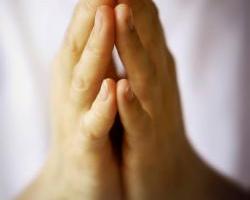Patients who suffer homosexual obsessive-compulsive disorder (HOCD or Gay OCD or Sexual Orientation OCD) are often at odds with their religion. Speculation as to whether religion plays a role in causing, hindering treatment for, or aiding HOCD is rampant, but no published research has been done on this subject.
The world's dominant religions are Islam and Christianity, both of which have roots in Judaism. These religions traditionally see homosexuality as wrong, repugnant, and even evil. Though some theological debate over the origins of this are ongoing, tradition generally dictates that Christians and Muslims eschew homosexuality as wrong.
Given the influence religion can have on sufferers of OCD, it's no great leap to look to them as causes or cures for the disorder. With the deep sentiment often existing in these religions for gays, their affect on patients with HOCD is especially important.
Does Religion Cause HOCD?
Religion can definitely play a role in HOCD if anecdotal evidence is considered. Religion is often taught to patients who practice it from a young age. Often, the traditional notions inherent in the culture around the religion are imbued into the patient's mind as an integral part of their religion, despite many of these views not being a part of the religion's codices.
Cultural training is a part of everyone's life - we all have it. Often, common cultural background is what psychologists and therapists use to make connections with and find the right questions for exploration with patients. Religion, like any other part of common culture, can be used in this way.
Yet to blame religion for "creating" HOCD is over-simplified. Many parts of Western culture vilify homosexuality and clinical study has shown that most HOCD sufferers fear being homosexual as part of a much larger anxiety issue (or issues) that have little to do with sexuality itself.
Given this, religion, if it plays a role in a patient's HOCD, is more likely to be used as a justification for the condition rather than an actual cause of it. Many will use religion as a reason for the hatred and self-loathing that often accompanies HOCD, pointing to religious texts or dogma as explanations for their depression.
Can Religion Make HOCD Worse?
With the above information, it becomes plain that religion can make HOCD worse in the sense that it gives a solid, external "anchor" for the patient to point towards as a reason for their need to obsess on homosexuality. Often, patients who do this will go to extremes of fundamentalism on the subject and see themselves as the worst kind of evil if they believe themselves to be gay.
This type of reaction is relatively rare, however, as most HOCD sufferers often use religion as just one of many justifications or reasons for their self-loathing.
Can Religion Help HOCD Patients?
In another sense, however, religion can be a great help in treating an HOCD patient. Religion can bring peace and give focus to obsessions faster than many other methods simply because the patient is likely to already have knowledge of the religion and only needs be reminded of it. Prayer is a form of meditation and physically can have the same effects on the brain.
In fact, religious counseling is often used as part of an overall strategy to help OCD sufferers. Including those with HOCD.
This does not make religion a cure nor does it mean that Christianity or Islam (or any other religion) can help every patient every time. Some patients, even those who are devout followers of a religion, fine little solace in it as a cure for their HOCD.
But it can be a help and thus should be part of a possible treatment regimen.



